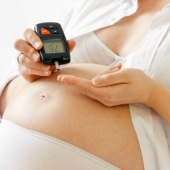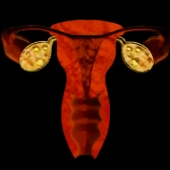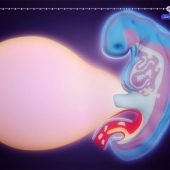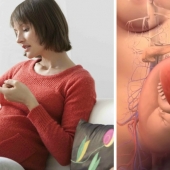A woman becomes pregnant when one of her eggs is fertilized by sperm. Normally, once an egg has been fertilized, it moves down a Fallopian tube to the uterus or womb. It implants itself in the uterine wall and is now an embryo. In an ectopic pregnancy, the fertilized egg implants itself outside the uterus because damage, scarring, or distortion of the Fallopian tubes leaves it unable to pass easily into the uterus.
Implantation in a Fallopian tube is called a tubal pregnancy. Or the egg may implant itself in an ovary, the abdomen or the cervix. Whatever the site of implantation, an ectopic pregnancy cannot continue to birth. If the embryo continues to develop, the tube or organ containing it, will eventually burst-- a potentially life-threatening emergency.
The risk of an ectopic pregnancy is increased by tube infections, surgery inside the abdomen, fertility medications at the time of fertilization, and a prior ectopic pregnancy. An ectopic pregnancy is usually identified during the first 5 to 10 weeks of pregnancy. Causing symptoms of abdominal and pelvic pain and vaginal bleeding, it may be confused with a miscarriage. How the developing cells are removed depends on their location and size.
- 3996 views













